Awards and Prizes
Every triennium, IFAC recognizes outstanding contributions of individuals from the automatic control community by handing out awards and prizes. For those a rigorous selection process is in place with many selection committees and volunteers involved. The chair of the IFAC Awards Committee for the triennium 2017-2020 is Karl Henrik Johansson.
Giorgio Quazza Medal
The 2020 Giorgio Quazza Medal goes to W. Murray Wonham
The Giorgio Quazza Medal recognizes outstanding lifetime contributions of a researcher and/or engineer to conceptual foundations in the field of systems and control. The award for the triennium 2017-2020 goes to W. Murray Wonham, "for fundamental and visionary contributions to control theory". This award is presented at the virtual opening ceremony of the World Congress.
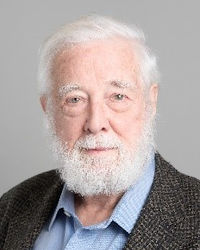
W. Murray Wonham received the BEng degree in Engineering Physics from McGill University (CA) in 1956, and the PhD in Control Engineering from the University of Cambridge (UK) in 1961. From 1961 to 1969 he was associated with several US research groups in control, including the Research Institute of Advanced Studies (RIAS), Brown University’s Department of Applied Mathematics, and NASA’s Electronics Research Center. Since 1970 he has been a faculty member in Systems Control, with the Department of Electrical and Computer Engineering of the University of Toronto (CA). W. M. Wonham’s research interests have included stochastic control and filtering, geometric multivariable control, and discrete-event systems. He is the author of "Linear Multivariable Control: A Geometric Approach" (Springer-Verlag: 3rd edn 1985), co-author (with C. Ma) of "Nonblocking Supervisory Control of State Tree Structures" (Springer-Verlag: 2005), co-author (with K. Cai) of "Supervisor Localization: A Top-Down Approach to Distributed Control of Discrete-Event Systems" (Springer-Verlag: 2015), and co-author (with K. Cai) of "Supervisory Control of Discrete-Event Systems" (Springer: 2019). He has published over 130 research articles in refereed journals and supervised over 80 MSc and PhD candidates.
In addition to being the winner of IFAC’s Giorgio Quazza Medal W. M. Wonham’s affiliations and awards include the following: Fellow of the Royal Society of Canada (RSC); Life Fellow of the Institute of Electrical and Electronics Engineers (IEEE); Foreign Member of the (US) National Academy of Engineering (NAE); Honorary Professor, Beijing University of Aeronautics and Astronautics (BUAA); University Professor Emeritus, University of Toronto; Advisory Editor, Discrete Event Dynamic Systems; IEEE Control Systems Science and Engineering Field Award; Brouwer Medalist, Netherlands Mathematical Society.
Past Recipients of the Giorgio Quazza Medal
| Year | Congress Location | Recipient | Country |
|---|---|---|---|
| 1981 | Kyoto | John F. Coales | UK |
| 1984 | Budapest | Yakov Z. Tsypkin | SU |
| 1987 | Munich | Karl J. Åström | SE |
| 1990 | Tallinn | Petar Kokotovic | US |
| 1993 | Sydney | Edward J. Davison | CA |
| 1996 | San Francisco | Alberto Isidori | IT |
| 1999 | Beijing | Brian D. O. Anderson | AU |
| 2002 | Barcelona | Lennart Ljung | SE |
| 2005 | Prague | Tamer Basar | US |
| 2008 | Seoul | Graham Goodwin | AU |
| 2011 | Milan | Hidenori Kimura | JP |
| 2014 | Cape Town | David Mayne | UK |
| 2017 | Toulouse | Roger Brockett | US |
Nathaniel B. Nichols Medal
The 2020 Nathaniel B. Nichols Medal goes to Masayoshi Tomizuka
The Nathaniel B. Nichols Medal recognizes outstanding contributions of an individual to design methods, software tools and instrumentation, or to significant projects resulting in major applications and advancement of control education. The award for the triennium 2017-2020 goes to Masayoshi Tomizuka, "for pioneering contributions to the control of mechatronic systems". This award is presented at the virtual opening ceremony of the World Congress.
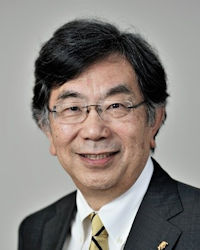
Masayoshi Tomizuka holds the Cheryl and John Neerhout, Jr. Distinguished Professorship in Engineering at the University of California Berkeley (US). He obtained his PhD degree at Massachusetts Institute of Technology (US) and joined the faculty of the Department of Mechanical Engineering at UC Berkeley in 1974. M. Tomizuka has worked on optimal and adaptive control, digital control, signal processing and nonlinear control and their applications to mechatronic systems such as robots, vehicles, hard disk drives and precision motion systems. He has published more than 800 papers in archival journals and refereed conference proceedings. To date, he has supervised 130 PhD students to completion. Many of his students teach at national and international academic institutions and others work as leaders in various industries. M. Tomizuka served as Vice Chair of Mechanical Engineering at UC Berkeley from December 1989 to December 1991 and from July 1995 to December 1996. Since 2011, he has served as Associate Dean of the College of Engineering at UC Berkeley.
He was Senior Technical Editor of the ASME Journal of Dynamic Systems, Measurement and Control (1988-1983), Associate Editor of IFAC Journal Automatica (1993-1999) and Editor-in-Chief of IEEE/ASME Transactions on Mechatronics (1997-1999). He served as General Chair of 1995 ACC and President of AACC (1998-1999). He has held various leadership positions in ASME, AACC and IFAC. In IFAC M. Tomizuka chaired the IFAC Awards Committee (2005-2008) and the IFAC Publications Committee (2008-2011). He served as Chair of IFAC Technical Committee on Mechatronic Systems (2005-2011) and Member of the Technical Board of IFAC (2014-2017).
In recognition of his research contributions and leadership M. Tomizuka has received numerous awards, including the Charles Russ Richard Memorial Award of ASME (1997), the Rufus Oldenburger Medal of ASME (2002), the John R. Raggazzini Award of AACC (2006), the Outstanding Service Award of IFAC (2017) and the Richard E. Bellman Control Heritage Award of AACC (2018). He is a Life Fellow of ASME and IEEE and a Fellow of IFAC.
Past Recipients of the Nathaniel B. Nichols Medal
| Year | Congress Location | Recipient | Country |
|---|---|---|---|
| 1996 | San Francisco | Jürgen Ackermann | DE |
| 1999 | Beijing | Gunther Stein | US |
| 2002 | Barcelona | Carl Nett | US |
| 2005 | Prague | William F. Powers | US |
| 2008 | Seoul | Gerd Hirzinger | DE |
| 2011 | Milan | Siva Banda | US |
| 2014 | Cape Town | Reza Moheimani | AU |
| 2017 | Toulouse | Lennart Ljung | SE |
Manfred Thoma Medal
The 2020 Manfred Thoma Medal goes to Florian Dörfler

The Manfred Thoma Medal recognizes outstanding contributions of a young researcher and/or engineer under the age of 40 to the field of systems and control in its widest sense. The award for the triennium 2017-2020 goes to Florian Dörfler, "for contributions to the analysis of nonlinear models of power grids and network systems". This award is presented at the virtual opening ceremony of the World Congress.
Florian Dörfler is an Associate Professor at the Automatic Control Laboratory at ETH Zürich (CH). He received his Ph.D. degree in Mechanical Engineering from the University of California Santa Barbara (US) in 2013, and a Diploma degree in Engineering Cybernetics from the University of Stuttgart (DE) in 2008. From 2013 to 2014 F. Dörfler was an Assistant Professor at the University of California Los Angeles (US). His primary research interests are centered around control, optimization, and system theory with applications in network systems such as electric power grids, robotic coordination, and social networks.
Past Recipients of the Manfred Thoma Medal
| Year | Congress Location | Recipient | Country |
|---|---|---|---|
| 2017 | Toulouse | Ming Cao | NL |
IFAC Advisors
Due to their outstanding contributions to IFAC, the following persons are named Advisors to IFAC:
- Paul Van den Hof, for outstanding contributions in managing the executive activities in IFAC
- Kurt Schlacher, for outstanding contributions in leading the IFAC Secretariat over a 15 year period
- Janan Zaytoon, for outstanding and inspiring leadership of IFAC
IFAC Advisors may be consulted by the active officers on any matter related to the Federation or given special assignments as the President deems appropriate. This award is presented at the virtual opening ceremony of the World Congress.
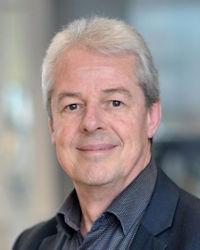
|
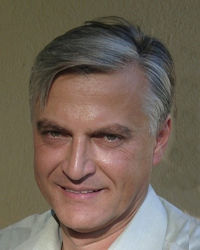
|

|
|
|
|
|
Previously appointed IFAC Advisors
| Pedro Albertos | Brian D.O. Anderson | Tamer Basar |
| Sergio Bittanti | Ian K. Craig | Francis J. Doyle III |
| Peter Fleming | Janos Gertler | Roger Goodall |
| Lino Guzzella | Abraham Haddad | Gusztav Hencsey |
| Rolf Isermann | Alberto Isidori | Stephen J. Kahne |
| Hidenori Kimura | Vladimir Kucera | Wook Hyun Kwon |
| Lennart Ljung | Mohamed Mansour | Iven Mareels |
| Michael K. Masten | Tibor Vamos |
Industrial Achievement Award
The Industrial Achievement Award is given to an individual, or a team of individuals, who has made a significant contribution to industrial applications of control. The award for the triennium 2017-2020 goes to Francis J. Doyle III, "for leading an outstanding team effort over many years with a combination of control experts, medical researchers and industry, resulting in numerous granted patents and a large number of patients in clinical trials that has now led to the commercialization of the Artificial Pancreas for treatment of type 1 diabetes". This award is presented at the virtual opening ceremony of the World Congress.

Francis J. Doyle III "Frank" Doyle is the John A. Paulson Dean of the Paulson School of Engineering and Applied Sciences at Harvard University, where he also is the John A. & Elizabeth S. Armstrong Professor. Prior to that he was the Mellichamp Professor at the University of California- Santa Barbara (US), where he was the Chair of the Department of Chemical Engineering, the Director of the UCSB/MIT/Caltech Institute for Collaborative Biotechnologies, and the Associate Dean for Research in the College of Engineering. He received a B.S.E. degree from Princeton, C.P.G.S. from Cambridge, and Ph.D. from Caltech, all in Chemical Engineering. He has also held faculty appointments at Purdue University and the University of Delaware, and held visiting positions at DuPont, Weyerhaeuser, and Stuttgart University. F. Doyle has been recognized as a Fellow of multiple professional organizations including: IEEE, IFAC, AIMBE, AIChE and the AAAS. He was the President for the IEEE Control Systems Society in 2015 and was the Vice President and Chair of the Technical Board for the International Federation of Automatic Control from 2014 to 2017. In 2005, he was awarded the Computing in Chemical Engineering Award from the AIChE for his innovative work in systems biology, and in 2015 received the Control Engineering Practice Award from the American Automatic Control Council for his development of the artificial pancreas. In 2016, he was inducted as a Fellow into the National Academy of Medicine for his work on biomedical control. That same work earned him induction to the National Academy of Inventors in 2020.
High Impact Paper Award
The High Impact Paper Award acknowledges the impact of a paper published in any of the official IFAC journals on the broad areas of automatic control theory and application. The award for the triennium 2017-2020 goes to Wilson J. Rugh and Jeff S. Shamma for their paper: "Research on gain scheduling", published in the IFAC Journal Automatica, vol. 36, pp. 1401-1425, 2000. This award is presented at the virtual opening ceremony of the World Congress.
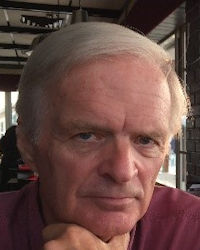
Wilson J. Rugh received the B.S. degree in electrical engineering from Penn State University, University Park, PA (US) in 1965, and the M.S. and Ph.D. degrees in electrical engineering from Northwestern University, Evanston, IL (US) in 1967 and 1969, respectively. From 1969 to 2007 he served on the faculty of Johns Hopkins University (US), and currently is the Edward J. Schaefer Professor Emeritus in the Department of Electrical and Computer Engineering. He is the author of numerous research articles and three books - most recently "Linear System Theory," 2nd ed, Prentice Hall, 1996. He has received multiple teaching awards at Johns Hopkins, and, in 2001, the NEEDS Premier Award for Excellence in Engineering Courseware for the development of Web-based, interactive demonstrations of concepts in signals, systems, and control. W.J. Rugh has served as an associate editor of the journals IEEE Transactions on Automatic Control, Mathematics of Control, Signals, and Systems, and Systems & Control Letters. He is a Fellow of the IEEE and a Distinguished Member and Past-President of the IEEE Control Systems Society.
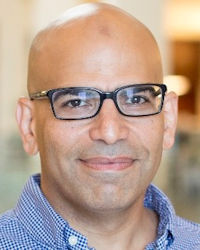
Jeff S. Shamma is a Professor of Electrical Engineering at the King Abdullah University of Science and Technology (KAUST) in Saudi Arabia, where he is also the Director of the Center of Excellence for NEOM Research at KAUST and principal investigator of the Robotics, Intelligent Systems & Control laboratory (RISC). Prior to joining KAUST, he was the Julian T. Hightower Chair in Systems & Control in the School of Electrical and Computer Engineering at Georgia Tech (US). J. Shamma received a Ph.D. in systems science and engineering from MIT (US) in 1988. He is the recipient of an NSF Young Investigator Award, the American Automatic Control Council Donald P. Eckman Award, and the Mohammed Dahleh Distinguished Lecture Award, and he is a Fellow of the Institute of Electrical and Electronics Engineers (IEEE) and of the International Federation of Automatic Control (IFAC), and a past Distinguished Lecturer of the IEEE Control Systems Society. J. Shamma is currently serving as the Editor-in-Chief for the IEEE Transactions on Control of Network Systems and as an associate editor of the IEEE Transactions on Robotics.
IFAC Fellows
The IFAC Fellow Award is given to persons who have made outstanding and extraordinary contributions in the field of interest of IFAC, in the role as an Engineer/Scientist, Technical Leader, or Educator. For the triennium 2017-2020, the following persons are awarded at the virtual opening ceremony of the World Congress:
- Murat Arcak (UC Berkeley, US), for contributions to nonlinear systems, control of networks and applications
- R. Donald Bartusiak (ExxonMobil, US), for contributions to the application of non-linear model predictive control in the chemical industry
- Lorenz T. Biegler (Carnegie Mellon University, US), for contributions to optimization of process systems, including theory, algorithms, software and applications
- Linda G. Bushnell (University of Washington, US), for contributions to the analysis and design of networked control systems
- Peter E. Caines (McGill University, CA), for contributions to system identification and adaptive control, and the creation of mean field game theory
- Marco C. Campi (University of Brescia, IT), for contributions to data-driven methods in systems and control
- Jie Chen (Tongji University, CN), for contributions to optimization, decision-making, and control of complex systems
- Maria Domenica Di Benedetto (University of L’Aquila, IT), for contributions to nonlinear and hybrid system theory and leadership in control research and education
- Magnus B. Egerstedt (Georgia Institute of Technology, US), for contributions to hybrid and networked control, with applications in robotics
- Jay A. Farrell (UC Riverside, US), for contributions to estimation and control for autonomous vehicle applications
- Alessandro Giua (University of Cagliari, IT), for contributions to discrete-event and hybrid systems
- David J. Hill (University of Hong Kong, CN), for contributions to stability theory and distributed control theory with applications to power systems
- Dragan Nesic (University of Melbourne, AU), for contributions to modelling, analysis and design of networked and sampled-data control systems
- Hendrik Nijmeijer (Eindhoven University of Technology, NL), for contributions to the theory and applications of nonlinear control systems analysis and design
- Angeliki Pantazi (IBM Research-Zurich, CH), for contributions to advanced control of magnetic-tape data storage and nano-positioning
- George J. Pappas (University of Pennsylvania, US), for contributions to hybrid and networked control systems with applications to robotics
- Kameshwar Poolla (UC Berkeley, US), for contributions to system identification and robust control with applications to manufacturing and energy
- Rodolphe J. Sepulchre (University of Cambridge, UK), for contributions to nonlinear control, optimization on manifolds and control of rhythmic behaviors
- Roy S. Smith (ETH Zurich, CH), for contributions to robust model validation and advanced control system applications
- Gregory E. Stewart (University of British Columbia, CA), for contributions to advanced model based control of industrial systems and its transition into practice
- Toshiharu Sugie (Osaka University, JP), for contributions to robust and learning control
- Jing Sun (University of Michigan, US), for contributions to adaptive control, automotive and marine powertrain control systems
- Paolo Tabuada (UC Los Angeles, US), for contributions to analysis and design of cyber-physical systems
- Claire J. Tomlin (UC Berkeley, US), for contributions to cyber-physical and hybrid systems with application to safety in autonomy and learning
- Bo Wahlberg (KTH Royal Institute of Technology, SE), for contributions to system identification and the development of orthonormal basis function models
Harold Chestnut Control Engineering Textbook Prize
This textbook award is presented at each triennial Congress for the best control engineering textbook for which the first edition must have been published in the period between nine and three years prior to the Congress at which the award is to be presented. It recognizes the author(s) of the textbook judged to have most contributed to the education of control engineers.
The award for the triennium 2017-2020 goes to Y. Shtessel, C. Edwards, L. Fridman, and A. Levant for their book "Sliding Mode Control and Observation", publisher: Birkhäuser, Springer, New York, 2014. This award is presented at the virtual opening ceremony of the World Congress.
Outstanding Service Award
This award recognizes IFAC officials for long term service to IFAC in senior offices. It is presented to any IFAC Official that has served three three-year terms (9 years), not necessarily consecutive, in a defined office. The awards are presented at the virtual opening ceremony of the World Congress.
For the triennium 2017-2020, the following persons are awarded at the virtual opening ceremony of the World Congress: József Bokor (SZTAKI, HU), Luis Bergh (Santa María University, CL), Hideaki Ishii (Tokyo Institute of Technology, JP), Andreas Kugi (TU Wien, AT), Francoise Lamnabhi-Lagarrigue (CNRS, FR), Jay H. Lee (KAIST, KR), Reza Moheimani (UT Dallas, US), Jaime Alberto Moreno Pérez (UNAM, MX), Lawrence (Larry) Stapleton (Waterford Institute of Technology, IE), Alexander M. Tarasyev (Ural Federal University, RU), Fei-Yue Wang (Chinese Academy of Science, CN).
Journal Awards
The IFAC Journal Awards are given for outstanding papers published in the IFAC journals. The prize funds are provided by the publisher of the IFAC Journals, Elsevier Ltd. The awards are presented at the virtual closing ceremony of the World Congress.
Automatica Paper Prize
The prize is given for outstanding contributions to the theory and/or practice of control engineering or control science, documented in a paper published in the IFAC Journal Automatica.
- J. Maidens, A. Barrau, S. Bonnabel and M. Arcak, "Symmetry reduction for dynamic programming", Vol. 97, pp. 367-375, 2018.
- K. S. Phogat, D. Chatterjee, and R. Banavar, "A discrete-time Pontryagin maximum principle on matrix Lie groups", Vol. 97, pp. 376-391, 2018.
- X. Cheng, J. M.A. Scherpen, and B. Besselink, "Balanced Truncation of Networked Linear Passive Systems", Vol. 104, pp. 17-25, 2019.
Annual Reviews in Control Paper Prize
The prize is given for outstanding contributions to comprehensive and visionary views of the field of systems and control, documented in a survey, vision or tutorial article published in the IFAC Journal Annual Reviews in Control.
- A. V. Proskurnikov and R. Tempo, "A tutorial on modeling and analysis of dynamic social networks, Part I", Vol. 43, pp. 65-79, 2017
Control Engineering Practice Paper Prize
The prize is given for outstanding papers on the practical application of control techniques and advanced control theory, documented in a paper published in the IFAC Journal Control Engineering Practice.
- T. Böhm and T. Meurer, "Trajectory Planning and Tracking Control for the Temperature Distribution in a Deep Drawing Tool", Vol. 64, pp. 127-139, 2017.
- K. V. Nielsen, M. Blanke, L. Eriksson, and M. Vejlgaard-Laursen, "Adaptive feedforward control of exhaust recirculation in large diesel engines", Vol. 65, pp. 26-35, 2017.
- L. Jadachowski, A. Steinboeck and A. Kugi, "State estimation and advanced control of the 2D temperature field in an experimental oscillating annealing device", Vol. 78, pp. 116-128, 2018.
Journal of Process Control Paper Prize
The prize is given for outstanding contributions to the theory and/or practice of process control engineering, documented in a paper published in the IFAC Journal of Process Control.
Theory/Methods
- N.D. Peric, R. Paulen, M.E. Villanueva, and B. Chachuat, "Set-membership nonlinear regression approach to parameter estimation", Vol. 70, pp. 80-95, 2018.
Applications
- P. Joy, K. Rossow, F. Jung, H.-U. Moritz, W. Pauer, A. Mitsos, and A. Mhamdi, "Model-based control of continuous emulsion co-polymerization in a lab-scale tubular reactor", Vol. 75, pp. 59-76, 2018.
Survey
- M.B. Saltik, L. Ozkan, J.H.A. Ludlage, S. Weiland, and P.M.J Van den Hof, "An outlook on robust model predictive control algorithms: reflections on performance and computational aspects", Vol. 61, pp. 77-102, 2018.
Engineering Applications of Artificial Intelligence Paper Prize
The prize is given for outstanding contributions to the theory and/or practice of process control engineering, documented in a paper published in the IFAC Journal Engineering Applications of Artificial Intelligence.
Theory
- J.C.-W. Lin, L. Yang, P. Fournier-Viger, and T.-P. Hong, "Mining of skyline patterns by considering both frequent and utility constraints", Vol. 77, 2019.
Practice
- C. Lu, L. Gao, X. Li, S. Xiao, "A hybrid multi-objective grey wolf optimizer for dynamic scheduling in a real-world welding industry", Vol. 57, 2017.
Mechatronics Paper Prize
The prize is given for outstanding contributions to the theory and/or practice of mechatronics and control, documented in a paper published in the IFAC Journal Mechatronics
- M. Saxinger, L. Marko, A. Steinboeck, and A. Kugi, "Active rejection control for unknown harmonic disturbances of the transverse deflection of steel strips with control input, system output, sensor output, and disturbance input at different positions", Vol. 56, pp. 73–86, 2018.
- G. Cherubini, A. Pantazi, M. A. Lantz, "Feedback control of transport systems in tape drives without tension transducers", Vol. 49, pp. 211–223, 2018.
- S. Flixeder, T. Glück, A. Kugi, "Force-based cooperative handling and lay-up of deformable materials: Mechatronic design, modeling, and control of a demonstrator", Vol. 47, pp. 246–261, 2017.
Nonlinear Analysis: Hybrid Systems Paper Prize
The prize is given for outstanding contributions to the theory and/or practice of control engineering or control science within the domain of hybrid systems, documented in a paper published in the IFAC Journal Nonlinear Analysis: Hybrid Systems.
- T. Holicki, C.W. Scherer, "Stability analysis and output-feedback synthesis of hybrid systems affected by piecewise constant parameters via dynamic resetting scalings", Vol. 34, pp. 179-208, 2019.
IFAC Awards Committees & Chairs
The chair of the IFAC Awards Committee for the triennium 2017-2020 is Karl Henrik Johansson.
- Quazza Medal Selection Committee: Alberto Isidori (Chair), Roger Brockett, Graham Goodwin, Hidenori Kimura, Lennart Ljung, Francoise Lamnabhi-Lagarrigue, David Mayne.
- Nichols Medal Selection Committee: Pramod Khargonekar (Chair), Maria D. Di Benedetto, Shinji Hara, Manfred Morari, Mark Spong.
- Thoma Medal Selection Committee: Lei Guo (Chair), P.R. Kumar, Miroslav Krstic, Anders Lindquist, Ming Cao.
- Industrial Achievement Award Selection Committee: Alf Isaksson (Chair), Serge Boverie, Nina Thornhill, Bruce Allison, Ravindra (Ravi) Gudi, Don Bartusiak, Yilu Liu.
- High Impact Paper Award Selection Committee: James Rawlings (Chair), Tamer Basar, Alberto Bemporad, Franco Blanchini, Hassan Khalil, Miroslav Krstic, Andrew Teel, Mathukumalli Vydyasagar.
- Major Awards Search Committee: Anuradha Annaswamy (Chair), Naomi Leonard, Masayuki Fujita, Rick Middleton, Greg Stewart.
- Fellow Selection Committee: Anders Rantzer (Chair), Iven M. Mareels, Mustafa Khammash, Lei Guo, Lucy Pao, Carlos Canudas-de-Wit, Mark Spong, Shinji Hara, Tryphon Georgiou.
- Fellow Search Committee: Bob Bitmead (Chair), Bozenna Pasik-Duncan, Babatunda A. Ogunnaike, Jie Chen (City University of Hong Kong, CN).
- Harold Chestnut Control Engineering Textbook Prize Selection Committee: Henk Nijmeijer (Chair), Anthony Rossiter (Vice Chair), Jie Chen (City University of Hong Kong, CN), Rob Evans, Kristin Pettersen, Cristina Verde, Yutaka Yamomoto.
- Automatica Paper Prize Committee: Rodolphe Sepulchre (Chair), Bassam Bamieh, Mireille Broucke, John Lygeros, Robert Mahony, Sophie Tarbouriech.
- Annual Reviews in Control Paper Prize Committee: Arjan van der Schaft (Chair), Marika Di Benedetto, Kenji Fujimoto, Sonia Martinez, Thomas Meurer, Harish Pillai.
- CEP Paper Prize Committee: Masayuki Fujita (Chair), Francesco Borreli, Warren Dixon, Maria Pia Fanti, Li-Chen Fu, Oliver Sawodny.
- Journal of Process Control Paper Prize Committee: Martha Grover (Chair), Masoka Kishida, Jong Min Lee, Gabriele Pannocchia, Nina Thornhill, Jin Wang, Hong Yue.
- EAAI Paper Prize Committee: Bernard Grabot (Chair), C.W. Chan, Jus Kocijan, Shimon Nof, Matilde Santos.
- Mechatronics Paper Prize Committee: Klaus Janschek (Chair), Chung Choo Chung, Roger Goodall, Elena Lomonova, Claudio Melchiorri, Tsu-Chin Tsao, Takashi Yamaguchi.
- Nonlinear Analysis: Hybrid Systems Paper Prize Committee: Claire Tomlin (Chair), Antoine Girard, Daniel Liberzon, Ricardo Sanfelice, M. Elena Valcher, Ye Yuan.
- Applications Paper Prize Committee: Iven Mareels (Chair), Vladimir Havlena, Alexander Kurzhanski, Wei Ren, Mara Tanelli.
- Young Author Prize Committee: Hitay Ozbay (Chair), Alessandro Astolfi, Jozsef Bokor, Emilia Fridman, Hideaki Ishii, Jacquelien Scherpen, Andrea Serrani, Roy Smith.